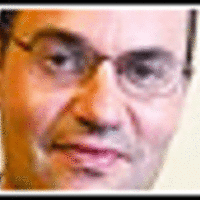Downton Abbey and the kinder, gentler 1 percent
If you were the Earl of Grantham would you be a benevolent daddy to your large staff of serfs and house maids? The NY Times has a very funny piece focused on altruism and class at Downton Abbey. Is Robert Crawley a special case? We don't see him interacting with other members of his class and these other fat cats making fun of him for his progressive views. He certainly didn't inherit his worldview from his mother (Maggie Smith). In the first season, there is some discussion that he fought in a war with Mr. Bates. Did this experience of being in combat with other men humble him? Did he learn that he was "no better" than other men who are not part of his 1%?
It doesn't appear that Robert Cawley believes in buying loyalty through paying efficiency wages.
Is one of the goals of this show to nudge successful people into being more altruistic towards others? In 2012, who is a gentleman for "altruistic reasons" versus to lower your taxes through deductions or to shine in the volunteer scene? How many successful people give away $ anonymously and what types of people do this?
The Earl inherited his title and his American wife's daddy provided the cash. In the U.S, more of the 1% have earned their $ themselves. If we had known that Bill Gates would give away roughly 90% of his fortune for his Gates Foundation, would we have rooted for the Federal government to break up Microsoft? Put differently, if we can identify the "good billionaires" should we help them to thrive so that they maximize their income (through using their skills and muscle) and then wait for the later payout to society as they give their fortune away. If billionaires could pre-commit to give away their fortune should this affect anti-trust policy?






